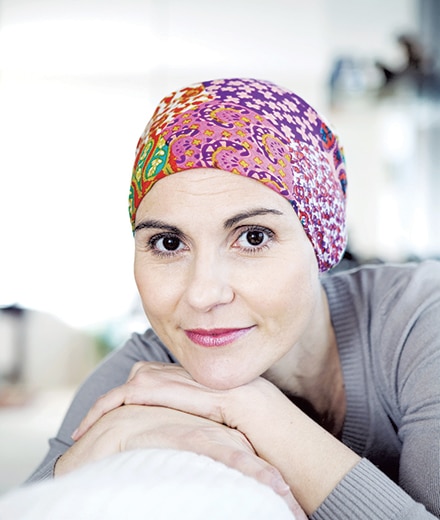But what these statistics don’t tell you, is that the true number of women impacted by breast cancer is far greater.
Even if you haven’t personally had breast cancer, you likely know someone who has. Maybe it’s your sister. Maybe your mom. Perhaps a friend?
These statistics also don’t begin to encapsulate the far-reaching effect that breast cancer has on the women who are diagnosed.
While this condition may be defined as the out-of-control growth of breast cells, it’s actually much more. Breast cancer may start as a purely physical condition, but it grows to impact patients mentally, emotionally and socially.
That’s why the Gwinnett Breast Program is redefining what it means to provide exceptional care to the complete individual.
One of the key ways that GMC does this is by prioritizing support groups for women at every stage of the healing process, from a recent diagnosis to survivorship.
Now, if you haven’t personally had breast cancer, you may be wondering why this should matter to you.
As Bobbie Menneg, a volunteer with the Gwinnett Breast Program and a breast cancer survivor explains, “It’s important to recognize the power that social support—in all forms—can have. Whether it’s a support group or spending time with close friends and family, social support plays a vital role in the well-being of breast cancer patients and survivors.”
In addition to reducing the experience of pain and fatigue, as well as improving self-image and feelings of control, here are some of the very real benefits that social support can have:
• It reduces anxiety and stress. To say a cancer diagnosis is stressful is an understatement. But with social sup-port, women are able to release their feelings of stress and anxiety while connecting with others so they don’t feel alone in their experiences. As one cancer survivor explains, “It means a shoulder to cry on, a hand to help you up, a kind word, support, understanding and love.”
• It increases resilience. Throughout the cancer care process, there may be many instances where it seems easier to give up than to persist and stay the course. However, with social support, patients are more likely to stay motivated and committed to their treatment. “As much as we can ask the medical staff about things, it’s always helpful to ask the advice of those who have lived it,” expresses another cancer survivor.
• It improves mood. During times of intense stress, like a cancer diagnosis, it’s not uncommon for patients to experience feelings of anxiety and depression. These feelings are spurred on by the spike in cortisol, which is the primary stress hormone. This can also lead to low energy, headaches and insomnia, among other things. However, social support can prompt the release of oxytocin, which helps to reduce the negative effects of stress and improves mood. One cancer survivor reflects on her experience with a support group, expressing that “Even within an hour of meeting them, they make you feel better about everything you’ve been feeling and going through.”
• It increases longevity. While there are many factors that impact breast cancer survival rates, several studies have shown that patients who are socially connected tend to live longer. Experts believe that this is due to the fact that social support reinforces the healing process and helps to establish a sense of purpose for patients.
With GMC, you’re never alone.
Whether you’ve just been diagnosed with breast cancer, you’re a 10-year survivor or you’re a friend of someone who has been battling, GMC has something to offer you. Support means something different to everyone. As another cancer survivor describes, “It’s a friendship beyond words. Understanding. Being able to cry or laugh when there’s nothing else to do.” That’s why GMC offers a wide variety of support resources, including Twisted Sisters Yoga, Appearance Specialist Support, Survivorship Group and more so that patients can receive care that’s as unique as they are. To learn more about GMC’s Breast Program, visit gwinnettmedicalcenter.org/breast.


